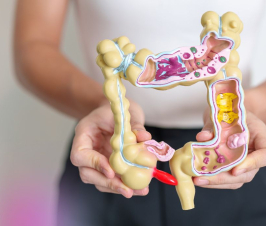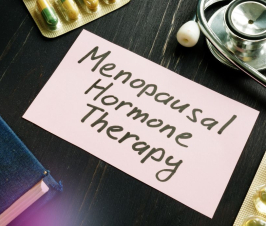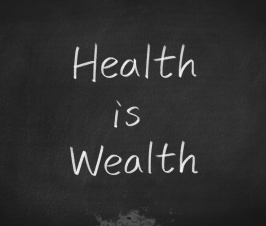Dr. Teerawong (Kan) Kasiolarn, ND, LAc, MSA
Erectile Dysfunction (ED), sometimes called impotence, is the repeated inability to achieve or sustain an erection firm enough for sexual intercourse.1,2 ED commonly affects men over 40 years of age (2%-12% of men aged 40-49 years and 50%-100% of men aged 70 years and older).1 In fact, the prevalence of ED has been increasing worldwide (from 150 million in 1995 to an estimated 322 million in 2025), which may be due to an aging population, poor dietary choices, physical inactivity, and other unhealthy lifestyle habits.3 Causes of ED may stem from a wide variety of factors, including psychological conditions, hormonal imbalance, neurologic disorders, congenital or acquired physical anomalies, cardiovascular diseases, respiratory disorders, liver disease, kidney problem, surgical complications, physical trauma, metabolic disorders, smoking cigarettes, diabetes, hypertension, obesity, recreational substance use, and adverse reactions to certain medications (especially anti-depressants).1-2
Note that an occasional episode of not being able to maintain an erection can occur in men and is normal. However, if it lasts more than two months and is a recurring issue, a doctor visit is recommended to get a thorough physical exam, psychological evaluation, and a comprehensive laboratory workup to determine an underlying cause of ED. It has been estimated that about half of ED is related to vascular causes.3 In fact, ED is considered as one of the best predictors of cardiovascular disease (CVD). It is estimated that after the onset of ED, many men experience CVD symptoms in 2-3 years and then suffer cardiovascular events (e.g., heart attack or stroke) in 3-5 years.3 Hence, it is a good idea to visit your doctor to rule out CVD if you experience frequent ED episodes. There are also some healthy lifestyle changes as well as natural therapeutics that can help with ED. And, here is my favorite list.
Adopt Healthy Lifestyle Changes
Adopting a healthy lifestyle is an essential part of preventing and improving ED. For some men, ED can be relieved by simply quitting smoking, avoiding recreational drugs, increasing physical activities (at least 30 minutes of exercise daily), getting enough sleep (eight hours a night), limiting or avoiding alcohol beverages, and/or effectively managing stress.3 Adopting these healthy lifestyle changes in addition to other treatments, such as medicines or surgery, can further help. Healthy diet is important as well (see the dietary recommendation in the next section below).
Keep Your Blood Sugar Level Under Control
Having poor blood sugar level (especially prediabetes or full-blown diabetes) is a strong risk factor for developing ED. According to the recent study from the Journal of the American Medical Association (JAMA) in September 2015, it has been estimated that 49 to 52% of adults (aged 20 years and older) in the U.S. either have full-blown Diabetes or Pre-Diabetes.4
Moreover, most people who have prediabetes are not aware of their medical problem. To comprehensively assess your blood sugar level, you may ask your doctor to run the following lab tests:
- Fasting Blood Glucose is snapshot of blood glucose at specific time of day while fasting over 8-12 hours. A 22-year prospective study found that men with fasting blood glucose above 85 mg/dL had a significant risk of dying from cardiovascular diseases.5 Therefore, the optimal level for a fasting glucose level usually ranges from 70 mg/dL to 85 mg/dL.5
- Hemoglobin (Hgb) A1C provides a picture of the average amount of blood glucose for the past 2-3 months, instead of just getting a snapshot of the fasting blood glucose. Hgb A1C is a good test for monitoring compliance of dietary recommendations for patients who have prediabetes/diabetes, or identifying early blood sugar issues. The optimal level for Hgb A1C should be less than 5.6%. However, its level can be affected by several medical conditions, including anemia (iron and/or B12 deficiency), kidney or liver disease, recent severe bleeding or blood transfusion, hemoglobin disorders, to name a few.
- Fasting Insulin level is a great test to check for insulin resistance problem. Insulin is a hormone produced by the beta cells of the pancreas, which is responsible for regulating the blood levels of glucose by facilitating uptake of glucose by cells for energy or for storage. Progressively elevated fasting insulin levels is significantly associated with insulin resistance as well as atherosclerosis and CVD risk. The optimal range for the fasting insulin level ranges from 3 mU/mL to 6 mU/mL.
Here is a simple dietary recommendation to help control your blood sugar level.
- AVOID the following foods that raise your blood glucose levels and promote insulin resistance:
- REFINED or SIMPLE CARBOHYDRATES (e.g., white flour, white bread, white rice, white potato, white pasta, high fructose corn syrup, any fruit juices or other sweet drinks, candy bars, pastries, candies, etc.)
- PROCESSED FOODS – including all trans fats or any hydrogenated oils; Saturated fats – including cheeses, deep-fried foods, butter, margarine, pork fats, beef fats, chicken skin
- SUGARS – including table sugar, raw/brown sugar, maple syrup, and artificial sweeteners (Aspartame or NutraSweet or Equal, Sucralose or Splenda). If necessary, you may use natural sweeteners such as Stevia, Xylitol, and Monk Fruit.
- AVOID HEATING UP ANY PLASTIC CONTAINERS OR MATERIALS, especially the ones that contain Bisphenol A (BPA) – a hormone-disrupting compound – that might negatively impact your insulin levels (an essential hormone that regulates your blood glucose levels).
- CONSUME the following healthy foods that prevent prediabetes/diabetes and normalize your blood sugar levels:
- HIGH-FIBER FOODS (gradually increase your dietary fiber intake to 30-50 grams/day) – including legumes, leafy green vegetables and salads, healthy unsalted nuts (e.g., raw almonds, walnuts, pecans, pistachios, Brazil nuts, etc.), healthy unsalted seeds (e.g., pumpkin seeds, sunflower seeds, Chia seeds, and ground-up flaxseeds)
- ANTI-INFLAMMATORY OMEGA-3 FOODS (e.g., low-mercury fish such as wild-caught salmon, sardines, and herring)
- LEAN AND HIGH QUALITY PROTEIN SOURCES (e.g., legumes, organic grass-fed poultry, low-mercury fish, organic free-range eggs, healthy nuts and seeds);
- HEALTHY FATS, which include avocados, almonds, walnuts, sesame seeds, coconut, and extra-virgin olive oil (for salad dressing and dipping).
Optimize Your Body Weight
Obesity is another significant risk factor for developing ED as well as prediabetes/diabetes. According to the Centers for the Disease Control and Prevention(CDC), more than one third (approximately 35% or more than 78 million) of U.S. adults are currently obese.6 The simplest way to know if you are overweight or obese is to calculate the Body Mass Index (BMI) – weight in kilograms divided by height in meters squared. Ideally, you should keep your BMI in between 19 to 25. A BMI above 25 indicates overweight and above 30 indicates obesity.
Acupuncture
A few clinical studies have suggested that acupuncture may help individuals suffering from ED.2 The practice of acupuncture originated in China about 5,000 years ago. Today, acupuncture is widely used throughout the world and is one of the main therapies of Chinese medicine besides Chinese herbal medicine. Acupuncture involves the insertion of needles in specific points of the body (called acupuncture points) to help move the “Chi or Qi” or energy. The blockage of Qi is believed to cause imbalance in the body, resulting in illness or disease. The results found that acupuncture can be an effective treatment option in more than two-thirds of patients with ED caused by psychological factors including stress, anxiety, and depression.2
Optimize Vitamin D Level
Vitamin D deficiency is very common in our modern society where most people are working indoors with minimal sunlight exposure. Vitamin D is actually a steroid hormone produced mainly in the human skin by sunlight stimulation.3 We don’t actually get much vitamin D from our diet at all. If you don’t take vitamin D supplement, it is very likely that you are vitamin D deficient. Vitamin D deficiency is common for both men and women. However, several studies have shown a strong link between ED and vitamin D deficiency.3, 7,8,9 The proposed mechanism is that vitamin D deficiency can lead to Endothelial Dysfunction (END), which interferes with vasodilation (widening of blood vessels) and essentially results in development of ED.3 Your doctor can easily check your vitamin D level by ordering 25-Hydroxy Vitamin D test (optimal level ranges from 60 to 80 ng/mL). Vitamin D deficiency is also associated with other chronic health problems, including chronic fatigue, muscle pain, atherosclerosis, hypertension, insulin resistance, diabetes mellitus, metabolic syndrome, bone loss (osteopenia/osteoporosis), cancers (e.g., breast cancer, colon cancer, etc.), autoimmune diseases (e.g., multiple sclerosis, rheumatoid arthritis, psoriasis, etc.), dementia, Alzheimer’s disease, chronic infections, and all-cause mortality. Daily vitamin D supplementation is necessary to obtain optimal level of vitamin D. In addition, vitamin D supplementation should be in the natural form called vitamin D3 (Cholecalciferol) instead of vitamin D2 (Ergocalciferol). Most adults need to take about 5,000-10,000 IU of Vitamin D3 daily depending upon their vitamin D level.
L-Arginine
L-arginine, or arginine, is an amino acid that can help raise nitric oxide in the body, resulting in the widening of the blood vessels. Some studies found that men with low nitrate levels (a cause of ED) in their blood or urine may find L-arginine supplements to be useful for managing ED.2 A randomized, controlled clinical trial reported improvements in patients with ED following use of a combination of L-arginine, glutamate, and yohimbine hydrochloride.2 Note that yohimbine hydrochloride is an U.S. Food and Drug Administration (FDA) approved drug therapy for ED, and the effects caused by arginine alone in this combination therapy are still unclear.2 Certainly, larger, high-quality clinical trials are necessary to clearly determine if L-arginine really works with ED. However, some of my patients have found L-arginine (1,000 – 2,000 mg daily) to be useful in helping them with ED. L-arginine is generally safe in recommended dosages. However, caution is advised when using in combination with anti-hypertensive medications because L-arginine can potentially reduce more blood pressure due to its vasodilation effect. Moreover, individuals with genital herpes need to be careful taking L-arginine as it could also trigger the herpes outbreak.
 Teerawong (Kan) is a certified naturopathic doctor through the Naturopathic Licensing and Examination Board with additional certifications in acupuncture and integrative medicine. He is also a licensed and nationally certified acupuncturist in the state of Virginia and a member of the American Association of Naturopathic Physicians (AANP). He has a special interest in helping patients with weight loss, diabetes, Fibromyalgia, thyroid problems, fatigue, adrenal disorders, pre-hypertension, hyperlipidemia, IBS, insomnia, and autoimmune diseases.
Teerawong (Kan) is a certified naturopathic doctor through the Naturopathic Licensing and Examination Board with additional certifications in acupuncture and integrative medicine. He is also a licensed and nationally certified acupuncturist in the state of Virginia and a member of the American Association of Naturopathic Physicians (AANP). He has a special interest in helping patients with weight loss, diabetes, Fibromyalgia, thyroid problems, fatigue, adrenal disorders, pre-hypertension, hyperlipidemia, IBS, insomnia, and autoimmune diseases.
Kan earned his Bachelor of Science with Honors in Biochemistry at Arizona State University and his Doctorate of Naturopathic Medicine and Master of Science in Acupuncture from Bastyr University in Seattle, WA. Bastyr is the world’s leading academic center for natural health sciences and one of four accredited naturopathic medical schools in the country.
Prior to working at Nova, Kan served as the Naturopathic resident at the University of Bridgeport College of Naturopathic Medicine (UBCNM) in Connecticut, Yale-Prevention Research Center (PRC), and the Integrative Medicine Center (IMC) at Griffin Hospital, a teaching facility affiliated with Yale University. During his residency program, he was able to integrate both Conventional and Naturopathic Medicines to treat acute and chronic diseases. He also lead a monthly discussion about health promotion and natural treatments to the general public at the Integrative Medicine Center.
References:
- DynaMed Plus. Erectile dysfunction (2015). Registration and login required [Web page]. http://www.dynamed.com/login.aspx?direct=true&site=DynaMed&id=113875. Accessed on June 10, 2016.
- Natural Medicines. Erectile Dysfunction (2016). Registration and login required [Web page]. https://naturalmedicines.therapeuticresearch.com/databases/medical-conditions/e/erectile-dysfunction.aspx Accessed on June 10, 2016.
- Sorenson M, Grant WB. Does vitamin D deficiency contribute to erectile dysfunction? Dermatoendocrinol. 2012 Apr 1;4(2):128-36.
- Menke A, Casagrande S, Geiss L, Cowie CC. Prevalence of and Trends in Diabetes Among Adults in the United States, 1988-2012. JAMA. 2015;314(10):1021-1029.
- Bjørnholt JV, Erikssen G, Aaser E, Sandvik L, Nitter-Hauge S, Jervell J, Erikssen J, Thaulow E. Fasting blood glucose: an underestimated risk factor for cardiovascular death. Results from a 22-year follow-up of healthy nondiabetic men. Diabetes Care. 1999 Jan;22(1):45-9.
- Centers for Disease Control and Prevention (CDC). Overweight & Obesity: Adult Obesity Facts [Web page]. CDC Web site. http://www.cdc.gov/obesity/data/adult.html Accessed on June 10, 2016.
- Caretta N, de Kreutzenberg SV, Valente U, Guarneri G, Ferlin A, Avogaro A, Foresta C. Hypovitaminosis D is associated with erectile dysfunction in type 2 diabetes. Endocrine. 2016 Jan 12.
- Barassi A, Pezzilli R, Colpi GM, Corsi Romanelli MM, Melzi d’Eril GV. Vitamin D and erectile dysfunction. J Sex Med. 2014 Nov;11(11):2792-800.
- Bellastella G, Maiorino MI, Olita L, Capuano A, Rafaniello C, Giugliano D, Esposito K. Vitamin D deficiency in type 2 diabetic patients with hypogonadism. J Sex Med. 2014 Feb;11(2):536-42.

















